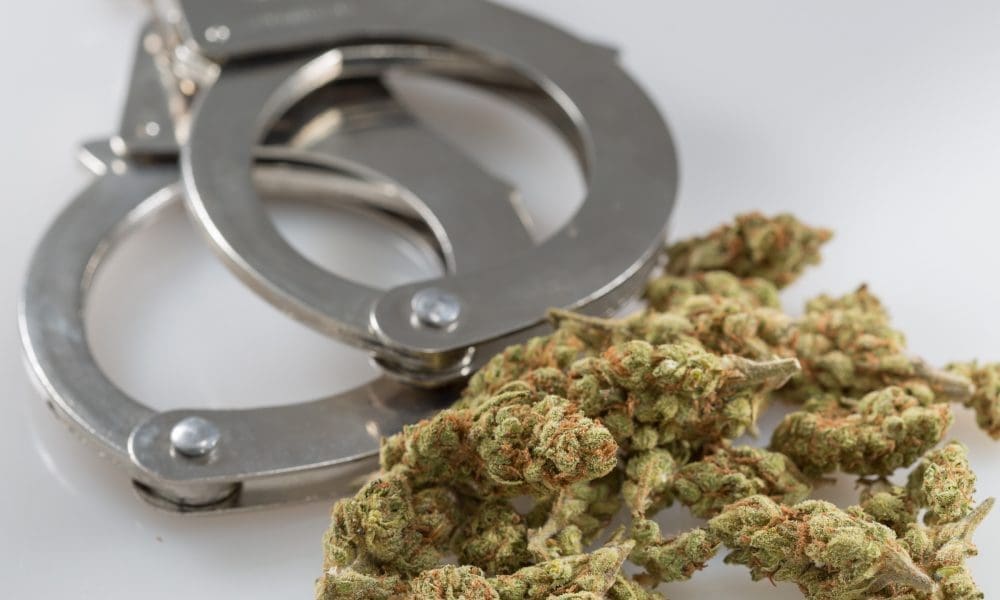ACLU of Nevada says cops are exploiting cannabis loophole to pursue arrests despite legalization (Op-Ed)
“Prosecutors and police continue to treat cannabis like heroin and methamphetamine rather than respecting the voice of Nevada voters.”
By Sadmira Ramic, ACLU of Nevada
United States attitudes towards cannabis began to change as more states decriminalized or legalized cannabis for medical and recreational use. Here in Nevada, cannabis has become a lucrative and profitable commodity for dispensaries and wholesalers, but prosecutors and police continue to treat cannabis like heroin and methamphetamine rather than respect the voice of voters in the Nevada.
Voters approved the Nevada Medical Marijuana Act, which legalized cannabis for medical purposes in our state and enshrined the medical value of cannabis in the Nevada Constitution nearly 25 years ago. Then, in 2016, Nevada voters approved the Initiative to Regulate and Tax Marijuana, which allowed for the legal possession of cannabis for recreational purposes. The initiative was explicit in its intent, including directives to stop using resources needed to prevent violent and property crime to prosecute cannabis-related offenses and to regulate cannabis in the same way as alcohol. .
The passage of these articles was a promising step towards ending the failed war on drugs, which treated black, brown and low-income communities disproportionately with regard to the use and sale of cannabis. These articles also showed promise in that they could reduce mass incarceration while dispelling the long-disproved idea that cannabis could not be used for medical purposes. On the surface, Nevada has made progress in righting past wrongs, but the government, police departments and district attorneys’ offices are abusing a loophole to continue enforcing unsound cannabis-related policies and laws. – policies that legalization was intended to eliminate.
The Nevada Legislature had previously delegated authority to the Nevada State Board of Pharmacy to classify drugs as “schedules”. The Council’s Annex I list is restricted to substances such as heroin and methamphetamine, which have no medicinal value or cannot be safely distributed. Cannabis is still classified by the Nevada State Board of Pharmacy as a Schedule I controlled substance, which means it has no medical value or cannot be safely distributed, even if the Nevada’s Constitution specifically recognized the medical value of cannabis and required that it be dispersed. to the public over the past quarter century.
Nevertheless, police departments and prosecutors use these laws to charge individuals with serious offenses for possession of cannabis. For example, if a person buys cannabis at a dispensary, shares it with a friend, and the friend pays it back, an officer could charge that person with possessing a Schedule I substance for sale, a crime that could occur at least a year after prison, because the police consider the reimbursement of cannabis as a sale. Contrast that with an individual who buys liquor from a store for a friend and gets reimbursed. This individual would not be charged with a criminal offence, and certainly not with a felony.
When Nevada voters legalized cannabis for recreational use, they demanded that cannabis be treated the same as alcohol, but clearly cannabis is still treated very differently than alcohol. When I explained this problematic practice to others, they asked if law enforcement really went after people in this way. The answer is unequivocally yes.
This practice wastes resources in prosecuting cannabis-related offenses and follows the same playbook as the racist war on drugs, with law enforcement disproportionately impacting black and brown communities. Nevada has come a long way in decriminalizing cannabis and repairing decades of damage, but we haven’t crossed the finish line. As long as this loophole exists for the government and its officials to exploit, cannabis will never be truly legal and racial disparities in cannabis arrests will not cease to exist.
Sadmira Ramic is an attorney at the ACLU of Nevada. She lives in Las Vegas.
This piece was first published by Nevada Current.
Connecticut lawmakers send proposed psychedelic treatment program to governor as part of budget bill


Comments are closed.